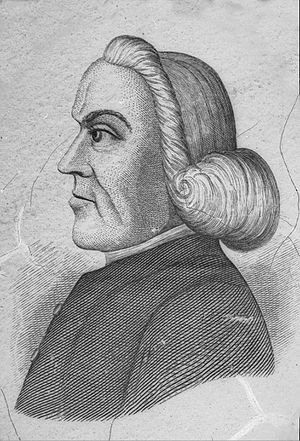Howell Harris (Q61430): Difference between revisions
Jump to navigation
Jump to search
(Changed an Item) |
(Changed an Item) |
||
| Property / National Library of Wales Authority ID | |||
| Property / National Library of Wales Authority ID: harris-howell-1714-1773-letter-to-with-draft-reply-by-1770-nlw-ms-1086c / rank | |||
Normal rank | |||
| Property / National Library of Wales Authority ID: harris-howell-1714-1773-letter-to-with-draft-reply-by-1770-nlw-ms-1086c / qualifier | |||
Revision as of 10:55, 11 December 2023
Welsh preacher
| Language | Label | Description | Also known as |
|---|---|---|---|
| English | Howell Harris |
Welsh preacher |
Statements
1773
9 references
Howell Harris (1714-1773), the religious reformer, was born at Trefeca in the parish of Talgarth, Breconshire. He served as a schoolmaster at Llangorse from 1732 to 1735 when he was converted by the preaching of the vicar of Talgarth. He himself began to evangelize in the neighbourhood, and entered St Mary Hall, Oxford, in the hope of taking holy orders, but left after a few days. He was refused ordination by the bishop on four occasions because of his preaching activities out of doors and in private houses. He came into contact with like-minded religious enthusiasts such as Daniel Rowland and William Williams (Pantycelyn) in Wales and George Whitefield and the Wesley brothers in England. Harris became the organizer of the Methodist Revival in Wales, the creator of the 'societies' and 'associations'. He remained anxious to keep the doors of Wales open for John Wesley, which was the root of a rift between himself and his fellow leaders resulting in 'The Great Schism' in their ranks. In 1754 he retired from his public life to Trefeca where he assembled a 'Family' of converts to live and work with him, and began a press in 1757. Three years later he became reconciled with his former friends and returned to the work of the Revival. He was not an outstanding preacher, but possessed charisma, abounding energy and persuasiveness. He was a founder member of the Brecknockshire Agricultural Society in 1755 and served as a militia captain in charge of a company from 'the Family'. He kept detailed 'journals', kept a few hymns and attempted an autobiography. He died in 1773.
0 references
